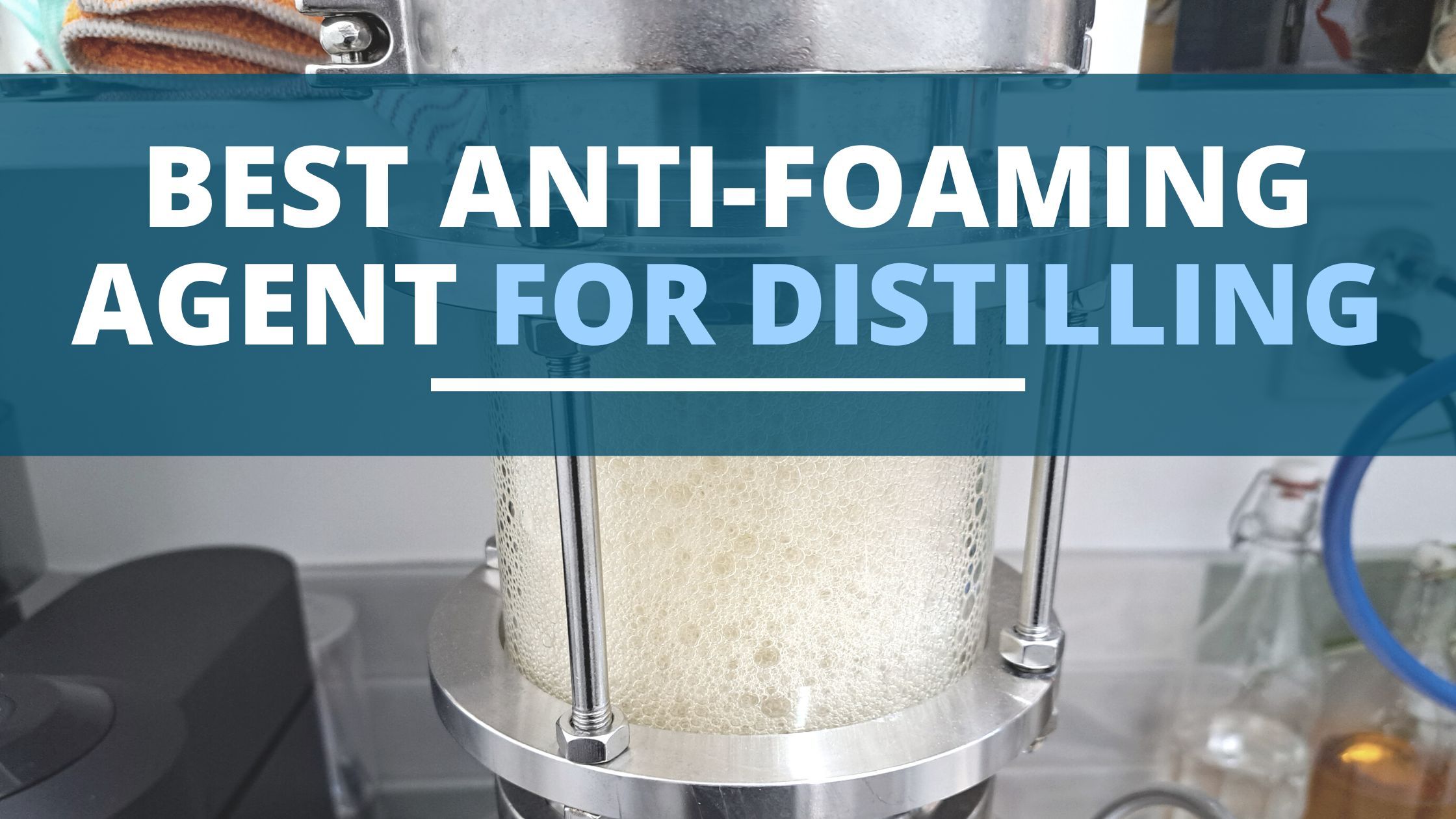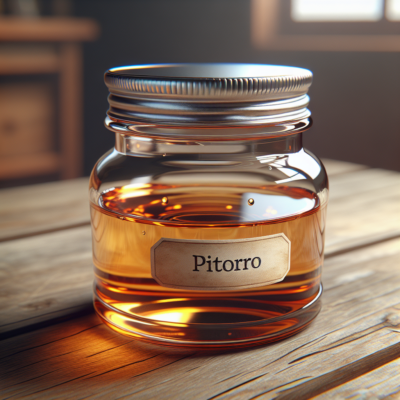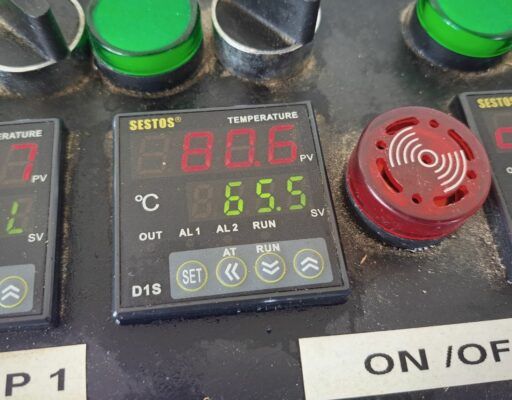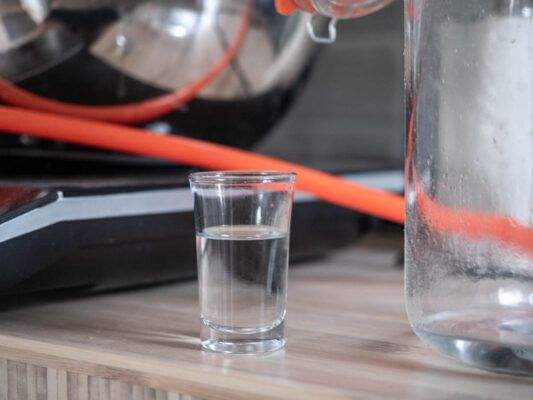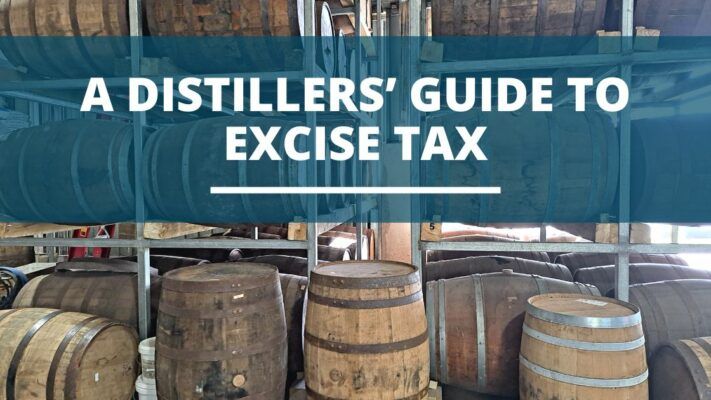Distilling, Distilling 101
The Best Puking And Anti-foaming Agents For Distilling (Our Recommendation)
If you’ve experienced a puking still and are looking for a surefire way to prevent it, you’ve come to the right place.
There are a lot of anti-foaming agents on the market, but we’ve included the ones we’ve found to effectively work best for extra starchy washes like all grain, potato, and molasses-based. They include both commercial and natural agents – linseed oil, 5-star defoamer, and butter, to name a few.
Carry on reading to find out more about your next, best anti-foaming agent for distilling.
Table of Contents
What Is Puking And What Causes It?
Puking is when a still foams up excessively. This causes the wash in a pot or reflux still to boil over from the column or lyne arm into the condenser and into your collecting jars. A sign that your still has puked is when your moonshine has a red, orange, or brown appearance with some foam to it. Some products have a high starch content – molasses, potato, and all grain-based, so they tend to foam more than other bases. Other causes of puke include.
- Too high a temperature. This creates excess vapor flow. The increased flow of vapor forces liquid out of the column to relieve the vapor pressure.
- Limited headroom. Limited space for the foam to collapse back to the boiler prevents the vapor from developing and moving up the column.
- Unfermented wash. An unfermented wash has CO2 available. When combined with the starchy ingredients in the wash, it creates air bubbles which ultimately form foam. When the gas comes in contact with heat, it starts off-gassing, therefore it erupts.
Read More: This article tackles exactly what puking is and how to fix it.
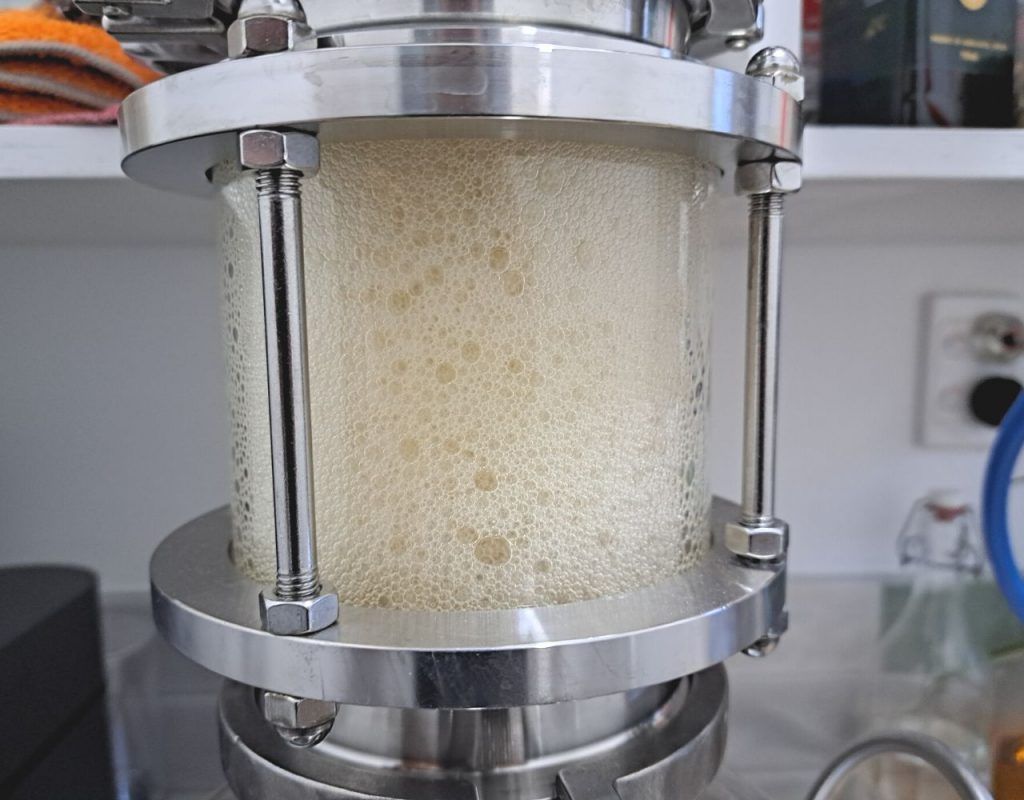
How An Anti-Foaming Agent Can Minimize Puking
Antifoaming agents are mostly silicone-based. Silicone reduces the surface area of the ingredients it interacts with. Because the protein and starches found in a wash have the potential to create cascading bubbles resulting in boiling over, the agents bind and penetrate the air bubbles, which crumple the foam.
The 5 Best Anti-Foaming Agents For Distilling
There are various anti-foaming and defoamers on the market. Depending on your preference, you can use commercial agents or opt for natural oils. They all carry out the same function – prevent foam before and after fermentation, and you don’t have to worry about an unpleasant taste carrying over to your final drink.
Here are 5 of the best anti-foaming agents we recommend.
- 5-Star Defoamer
- Still Spirits Distilling Conditioner
- Arauner Defoamer
- Linseed Oil
- Butter
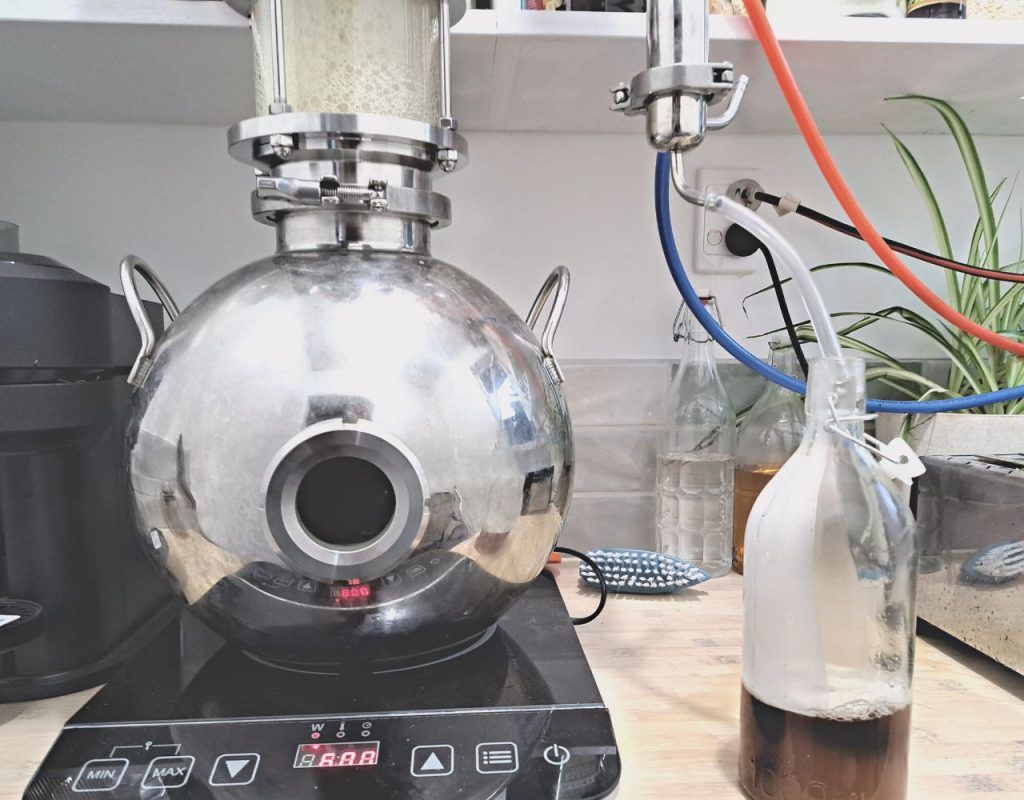
1. 5-Star Defoamer
As the name suggests, this is a defoaming agent. That means it can reduce existing foam, so it’s best added to a wash before fermentation. It has low surface tension which can effectively break down the surface area of ingredients found in a wash.
2. Still Spirits Distilling Conditioner
Still Spirits distilling conditioner effectively releases foam-forming carbon dioxide. The agent also stops unfermented sugars from foaming during distillation, and it’s mainly used as a defoaming agent.
3. ‘Arauner’ defoamer / anti-foaming agent
The advantage of using this agent is that it’s 2 in 1. You can use it during fermentation or during distilling. The product doesn’t get absorbed in the wash, so you don’t have to worry about flavor carryover.
4. Linseed oil
Oils are insoluble in water and have surface-active properties. What this means is that they can absorb and prevent surface tension of a wash, therefore reducing foam. A study of 9 natural oils‘ ability to stick to solids found that some ingredients adhered to the natural oils because of the low viscosity of these oils.
5. Butter
Similar to Linseed oil, using butter can effectively break down the air walls. But because butter does have a creamy taste you wouldn’t want present in your final product, it’s best to use a tablespoon per wash.
Conclusion
Using anti-foaming agents is a great way to control any nasty surprises that might occur during fermentation and distilling. If you’re anti-commercial defoamers and anti-foaming agents, you can explore the use of natural oils like linseed or butter.
Most of the anti-foaming agents in this post effectively break down the air walls (lamella) and easily spread through the wash because of their low surface tension.
If you’ve experienced a lot of foaming and puking during distillation, and want effective ways to prevent it, it’s best to use one of the agents in this post. This way you don’t feel like you’ve just wasted a good wash.

